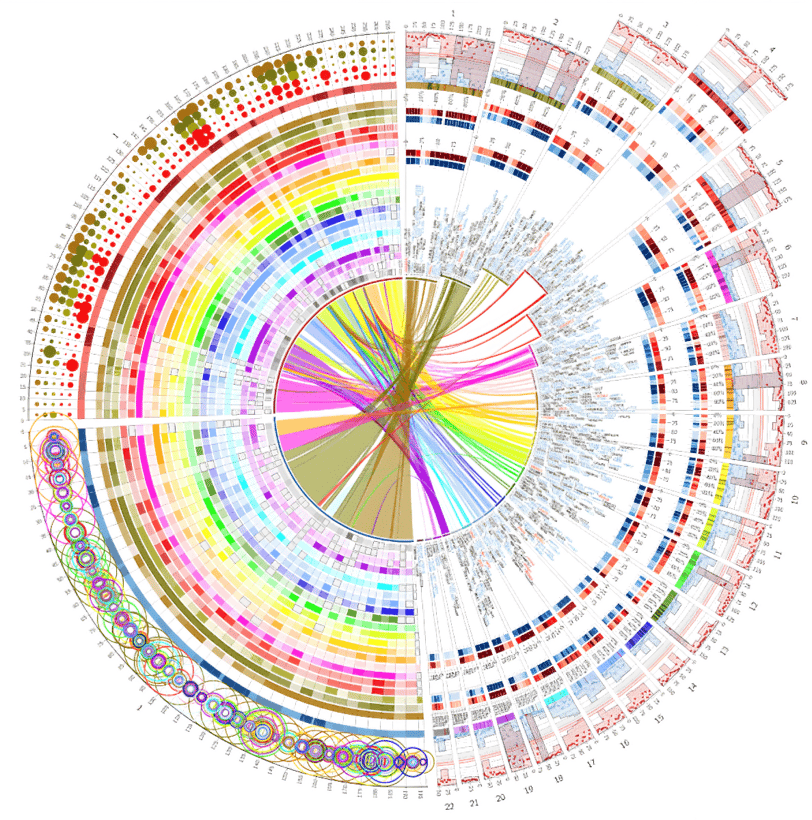The Role of Bioinformatics in Modern Medicine
3 min read


Bioinformatics is an interdisciplinary field that integrates biology, computer science, and information technology, and has become a fundamental aspect today's medicine. Bioinformatics is revolutionising our comprehension, diagnosis, and treatment of diseases by utilising computational tools and methodologies. This blog will examine the crucial significance of bioinformatics in modern medical practice and its capacity to transform healthcare.
Revolutionizing Disease Diagnosis:
Bioinformatics has made a notable impact on modern medicine by improving disease diagnosis. Conventional diagnostic techniques frequently depend on clinical manifestations and biochemical assays, which can be laborious and occasionally inconclusive. In contrast, bioinformatics facilitates the examination of genetic data in order to pinpoint disease signs with great accuracy.
Next-generation sequencing (NGS) technologies enable the swift sequencing of an individual's genome. Subsequently, bioinformatics techniques scrutinise this enormous volume of data to detect genetic variants linked to certain diseases. This technique has demonstrated immense value in the identification of genetic abnormalities, malignancies, and infectious diseases, resulting in earlier and more precise diagnosis.
Advancing Personalized Medicine:
Personalised medicine, or precision medicine, customises medical therapy based on the unique characteristics of each patient. Bioinformatics is essential in this technique since it examines genetic, epigenetic, and proteomic data to comprehend the distinct biological composition of every patient.
By utilising bioinformatics, healthcare providers can detect genetic abnormalities that impact a patient's reaction to specific medications. This data enables the tailoring of treatment programmes, reducing negative side effects and optimising therapeutic effectiveness. For instance, bioinformatics has enabled the advancement of targeted therapeutics in the field of oncology, wherein medications are specifically developed to combat particular genetic abnormalities identified in cancer cells.
Advancing the Process of Drug Discovery and Development:
The medication discovery and development process is widely known for its prolonged duration and high costs. Bioinformatics facilitates this process by offering tools for virtual screening, molecular modelling, and data mining. Bioinformatics can be utilised by researchers to find prospective therapeutic targets through the analysis of biological pathways implicated in disease processes.
In addition, bioinformatics facilitates the modelling of medication interactions at the molecular scale, allowing for the prediction of their effectiveness and any adverse reactions. This computer methodology decreases the requirement for costly laboratory research and expedites the discovery of potential medication candidates. Consequently, novel therapies can be delivered to patients more expeditiously and with reduced expenses.
Understanding and Combating Infectious Diseases:
The utilisation of bioinformatics has been essential in the examination of infectious diseases. Through the analysis of pathogen genomes, researchers can acquire valuable knowledge on their evolutionary processes, modes of transmission, and infection mechanisms. This data is indispensable for the development of efficacious vaccinations and therapies.
Amidst the COVID-19 pandemic, bioinformatics performed a crucial role in monitoring the transmission of the virus and detecting genetic variations. Computational models accurately forecasted the configuration of the virus's spike protein, providing guidance for the advancement of vaccinations. Bioinformatics technologies have also aided in the examination of patient data, enabling the identification of factors linked to severe disease outcomes and providing valuable insights for public health efforts.
Promoting Preventive Medicine:
Preventive medicine endeavours to mitigate the likelihood of disease prior to its occurrence. Bioinformatics facilitates the discovery of genetic risk factors associated with different illnesses. Genome-wide association studies (GWAS) enable researchers to find prevalent genetic variations linked to diseases such as diabetes, cardiovascular diseases, and autoimmune disorders.
Equipped with this information, persons who are at a high risk can receive closer monitoring and implement preventive steps. Individuals with a hereditary predisposition to specific types of malignancies may be advised to make lifestyle modifications and undergo regular testing. Bioinformatics contributes to the alleviation of disease impact on individuals and healthcare systems by prioritising prevention.
Conclusion:
The incorporation of bioinformatics into contemporary medicine has introduced a new epoch of healthcare, distinguished by accuracy, effectiveness, and novelty. Bioinformatics is revolutionising our approach to medical difficulties, from improving illness diagnostics to advancing personalised therapy. With the ongoing advancement of technology, the potential for bioinformatics to transform healthcare is expanding. This holds the promise of a future where medical treatments are customised for each patient, diseases are identified at an earlier stage, and the development of novel therapeutics is accelerated. Adopting the potential of bioinformatics is crucial for the progress of contemporary medicine and enhancing patient results.
